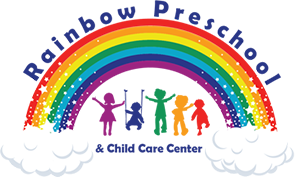
Before students become effective in learning, they must be healthy and in good condition first. Sickness or undiagnosed needs due to impairment can significantly affect their schooling. Thus, ensuring kids’ assistance in health guarantees them a good start in pre-k. Do you know if Medicaid can cover these when they enter pre-k?
The excellent news is Medicaid has a Children’s Health Insurance Program (CHIP) for very young kids up to 18 years old. Thus, it indeed covers kids four to five-aged kids who are considered for the pre-k stage.
The specifics vary from state to state but overall, the program is supportive of kids from low-income earning families. It also extends assistance to students with disabilities and other conditions.
Income or financial circumstance
Generally, parents or guardians earning up to $50,000 per year (for a family of four) can apply for their young children. The basis for financial circumstances depends on things like family size and the set poverty level in a year. In 2022, the Children’s Medicaid Federal Poverty Level for the family of three with children 1 to 18 is $2,956 per month. If the family size is seven, it’s $5,379 monthly.
In New York, there’s the alternative insurance Child Health Plus offers a free premium for those living on an income 1.6 times below the poverty line. In Virginia, the cap for a family of three is $30,630 (before taxes) per year or around $2,553 per month. For a family of seven, it’s $55,741(before taxes) annually or $4,645 monthly. The eligible applicants may need to shoulder low-co pays on some services, but there’s no fee to enroll in Medicaid.
Kids with disabilities

Parents or guardians who pay for health-related expenses for their pupils with disabilities can find help with CHIP. For example, kids with chronic diseases like diabetes and speech problems can have assistance to pay for the nurses and therapists.
Apart from this, Medicaid also has Early Periodic Screening Diagnostic and Treatment (EPSDT), a program for fees on medical tools and services related to developmental, mental, or physical disabilities. Examples of supplies that EPSDT can cover are wheelchairs, hearing aids, and eyeglasses.
Overall, Medicaid-eligible kids are covered with the services such as immunization, dental and vision care, routine check-ups, and doctor visits. It also includes the following:
- Prescriptions
- Inpatient and outpatient hospital care
- Laboratory and X-ray services
- Emergency services
- Mental health services
Note that Medicaid may cover more services other than these, depending on a state’s policies.
Pre-k is undoubtedly valuable in child development, especially in the learning aspect. We can say that there are benefits they will reap in the future. And it helps the young children are well to receive and experience what pre-k can offer. Moreover, it is helpful for their families to have support, at least for the other needs of their young learners. They are cutting the expenses related to health or medical matters, and they have fewer worries about sending their kids to pre-k.
Moreover, most preschools are well-connected to Medicaid, and their medical projects are funded or in coordination with the public insurance program.

Recent Comments